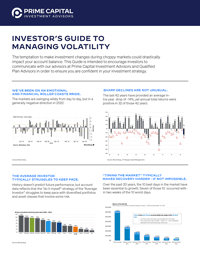There are five changes coming to Social Security in 2024 that will impact retirees. With over 71 million people in America relying on Social Security benefits, any tweaks to the program are pretty big news, so we wanted to highlight five of them.
The COLA (Cost of Living Adjustment) Rises
Next year, the cost-of-living adjustment isn’t as high as this year’s massive 8.7 percent jump, which was the largest in over 40 years. Still, even a little extra cash is great for those on fixed incomes. The SSA (Social Security Administration) announced that in 2024, benefit checks will bump up by 3.2 percent, which means the average retired worker on Social Security will see an extra $59 each month starting in January.
Specifically, for retired workers, the typical payment will go up from $1,848 to $1,907. And for couples where both partners receive benefits, they’ll get about $94 more, taking their estimated monthly Social Security income from $2,939 to $3,033*.
*IMPORTANT NOTE: Many people still don’t realize that when one spouse passes away, they will begin receiving only one Social Security check. While the larger one of the two checks will continue, this still cuts some people’s income drastically, and must be planned for in advance lest one of you drastically loses your financial means.
So just how are these COLAs calculated? Since 1975, the SSA has been linking these adjustments to the Consumer Price Index for urban wage earners and clerical workers (CPI-W). They basically compare the CPI-W from the third quarter of the previous year to the third quarter of the current year to figure out the COLA. Then they make adjustments based on the differences in the CPI-W from one year to the next.
Some consumer groups advocate using a more accurate index for retirement than urban wage and clerical workers.
Maximum Taxable Earnings Are Going Up
In 2023, the maximum earnings subject to Social Security taxes was $160,200. That is, workers paying into the system were taxed on wages up to this amount, typically at the 6.2 percent rate. In 2024, the maximum earnings will increase to $168,600, meaning more of a higher-earning worker’s income will be subject to the tax.
Maximum Social Security Benefit To Increase
As anticipated, the top Social Security benefit for a worker retiring at full retirement age will go up in 2024, climbing from $3,627 to $3,822. But remember, this maximum amount is for folks retiring at the full retirement age, which is 67 for those born after 1960.
If you retire before reaching the full retirement age, the maximum will be different since benefits are less in that scenario. The same goes for those retiring after their full retirement age if you haven’t earned enough during your career to qualify for the maximum. But waiting can boost your benefit check by 8 percent per year from full retirement age up until age 70, when you should file since your benefit will not go any higher after that.
Social Security Is Adjusting the Earnings Test Exempt Amounts
Social Security is tweaking the earnings test exempt amounts, which affect how much they’ll withhold from your retirement benefits if you start claiming them before hitting full retirement age while still working. These limits can snatch a significant chunk of your benefits if you’re still working. Here’s the lowdown for 2024:
If you file for Social Security before reaching full retirement age, you can still work and pocket up to $1,860 per month ($22,320 annually) in 2024 without the SSA diving in to withhold some of your benefits. But once you cross that line, they’ll hold back $1 in benefits for every $2 you earn above this limit. Last year, the maximum exempt earnings stood at $1,770 per month ($21,240 yearly).
In the year leading up to the month that you reach your full retirement age, in 2024 you can still work and earn up to $4,960 per month ($59,520 per year) before Social Security withholds some of your benefits. For every dollar above this cap, they’ll hold back $1 in benefits for every $3 earned (rather than $2 as before full retirement age). In 2023, the threshold sat at $4,710 per month ($56,520 per year).
After full retirement age, you can get your benefits with no limit on your earnings.
NOTE: Even after reaching full retirement age, your Social Security benefits may be subject to income taxes based on your combined income calculation.
Medicare Part B Premiums Increase
While Social Security and Medicare are different programs, most retirees participate in both, and many have their Medicare Part B premium automatically deducted from their Social Security check. Therefore, it’s important to know how much will be deducted, and the higher your income in the two years before you file for Medicare, the higher premiums you will pay.
Monthly Medicare Part B premiums will rise from $164.90 in 2023 to $174.70 in 2024. The annual Part B deductible is also rising next year, from $226 in 2023 to $240 in 2024, or a $14 increase.
If you would like help with your custom retirement plan, contact Jason Noble, CFP®, RICP® and the team at PCIA Charleston at (843) 743-2926. Jason holds both CERTIFIED FINANCIAL PLANNER™ and Retirement Income Certified Professional® designations and was named number five out of the Top 100 Solo Advisors to Watch in 2023 by AdvisorHub.
Sources:
https://finance.yahoo.com/news/theres-big-problem-2024-social-055000789.html
https://www.bankrate.com/retirement/social-security-benefits-changes-in-2024/#
https://www.ssa.gov/benefits/retirement/planner/taxes.html
https://www.rrb.gov/Newsroom/NewsReleases/MedicarePartBPremium#
This article is provided for general information only and is not to be construed as financial or tax advice. It is recommended that you work with your financial advisor, tax professional and/or attorneys when tax planning.
Advisory products and services offered by Investment Adviser Representatives through Prime Capital Investment Advisors, LLC (“PCIA”), a federally registered investment adviser. PCIA: 6201 College Blvd. Suite #150, Overland Park, KS 66211. PCIA doing business as Prime Capital Wealth Management (“PCWM”) and Qualified Plan Advisors (“QPA”).
122623003 MKS





